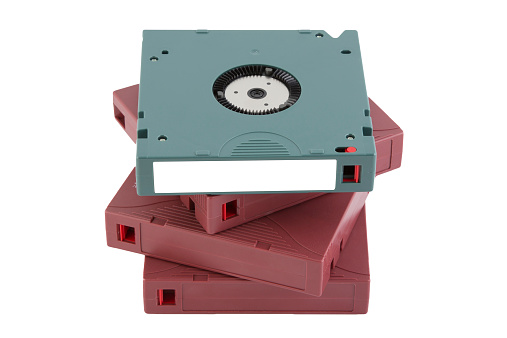It is important to keep our data safe and organized, especially when working in businesses or companies. Similar to food and water to humans, data is crucial for these companies as it somehow serves as their base and foundation. So as time went on, several people started coming up with their own inventions and patents on how to effectively and efficiently store data. And so, hardware devices such as hard drives, flash drives, and even floppy disks were born. From that era of creating a way to store data, people found a way to store data into magnetic tapes on open reels; thus, LTO was born.
But what exactly is LTO? The magnetic tape data storage technology known as LTO or Linear Tape-Open was created in the late 1990s as an open standards substitute for the available proprietary magnetic tape formats. More than 50 years have passed since the invention of magnetic tape storage. Even now, the availability and cost of this technology are restricted and somewhat costly.
Since they have been around for many decades, libraries and other places use them to store large data and as a backup for easy access. Data protection relies heavily on LTO Technology, which continues to be unmatched in terms of cost, storage, consistency, portability, and privacy. By offering an offline or backup alternative, an LTO tape system can further enhance a hard drive storage system.
Do people still use LTO?
As new technology rises, more and more people now switch to online servers when storing and backing up their data. Despite the disadvantages and flaws that may occur in the process of doing so, it is undeniable that these newer technologies are more accessible and efficient for everyone. This can be beneficial, especially to those who are in businesses and companies. Although that is the case, for the most part, tape data storage such as LTO is still being used primarily as a data backup storage.
Additionally, For many years now, the entertainment industry has embraced linear tape-open or LTO as data storage on a large scale and depended on it as a reliable, cost-effective storage option. Large production companies still continue to rely on LTO as the established standard for archival storage in order to build backup copies of their material.
Is it better than cloud storage?
Just because it is newer doesn’t mean it is all better. Cloud storage does also come with its pros and cons when storing and backing up data. When the rise of new technology occurred, many people argued between the better option. LTO vs. Cloud storage has been an argument that many people still can not choose between who is better simply because they are good in their own ways. Although LTO tapes have been the standard for backup and storage for a while, as previously mentioned, the industry is moving away from LTO as cloud storage becomes more prevalent. It is not breaking news that cloud storage is becoming a viable alternative to LTO, but there are several questions that need to be answered before making a decision on which option is best for you and your business or company.
Storage has improved with the emergence of the cloud, which is gradually displacing LTO tapes and other conventional storage formats. Cloud storage is the process of using a provider of cloud services to store data online. This storage format has altered storage in a way that has never been possible before by almost eliminating all maintenance and accessibility difficulties.
Despite cloud storage dominating as a data backup and storage, LTO is still used in many special cases. The cloud is typically chosen for long-term archiving as opposed to daily backups. The quantity of data created every day is increasing exponentially, yet LTO is still a viable option for storing very large data. Not only that, but we can also see that LTO is still employed as a cheap solution in industries where a lot of data is produced every day.
Nonetheless, although disk and the cloud have supplanted tape as the preferred storage option for daily backups, LTO or magnetic tape storing continues to be favored for long-term backup and storage due to its capacity, affordability, and dependability. Tape is a fantastic choice for storing big amounts of data as the size of the data keeps increasing continuously.


